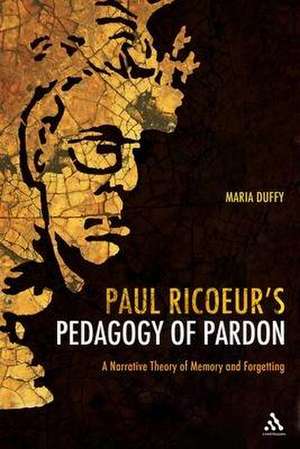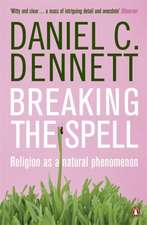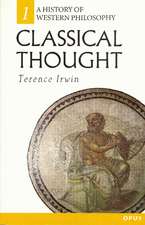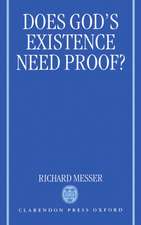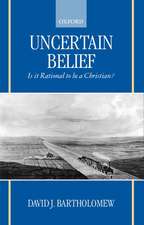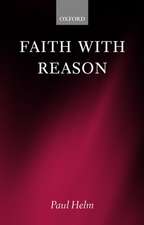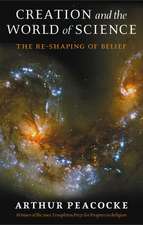Paul Ricoeur's Pedagogy of Pardon: A Narrative Theory of Memory and Forgetting
Autor Dr Maria Duffyen Limba Engleză Hardback – 22 apr 2009
Maria Duffy describes Paul Ricoeur's narrative theory of memory and addresses central conceptual and methodological issues in his theory of forgiveness and reconciliation. As the many Truth Commissions around the world illustrate, revisiting the past has a positive benefit in steering history in a new direction after protracted violence.
A second deeper strand in the book is the connection between Ricoeur and John Paul II. Both lived through the worst period of modern European history (Ricoeur a prisoner of war during WWII and John Paul, who suffered under the communist regime). Both have written on themes of memory and identity and share a mutual concern for the future of Europe and the preservation of the 'Christian' identity of the Continent as well as the promotion of peace and a civilization of love. The book brings together their shared vision, culminating in the award to Ricoeur by John Paul II of the Paul VI medal for theology.
A second deeper strand in the book is the connection between Ricoeur and John Paul II. Both lived through the worst period of modern European history (Ricoeur a prisoner of war during WWII and John Paul, who suffered under the communist regime). Both have written on themes of memory and identity and share a mutual concern for the future of Europe and the preservation of the 'Christian' identity of the Continent as well as the promotion of peace and a civilization of love. The book brings together their shared vision, culminating in the award to Ricoeur by John Paul II of the Paul VI medal for theology.
| Toate formatele și edițiile | Preț | Express |
|---|---|---|
| Paperback (1) | 255.76 lei 6-8 săpt. | |
| Bloomsbury Academic – 31 ian 2012 | 255.76 lei 6-8 săpt. | |
| Hardback (1) | 830.53 lei 6-8 săpt. | |
| Bloomsbury Publishing – 22 apr 2009 | 830.53 lei 6-8 săpt. |
Preț: 830.53 lei
Preț vechi: 1064.81 lei
-22% Nou
Puncte Express: 1246
Preț estimativ în valută:
158.92€ • 166.40$ • 131.81£
158.92€ • 166.40$ • 131.81£
Carte tipărită la comandă
Livrare economică 10-24 aprilie
Preluare comenzi: 021 569.72.76
Specificații
ISBN-13: 9781847064745
ISBN-10: 1847064744
Pagini: 208
Ilustrații: 4 illus
Dimensiuni: 156 x 234 x 19 mm
Greutate: 0.43 kg
Ediția:New.
Editura: Bloomsbury Publishing
Colecția Continuum
Locul publicării:London, United Kingdom
ISBN-10: 1847064744
Pagini: 208
Ilustrații: 4 illus
Dimensiuni: 156 x 234 x 19 mm
Greutate: 0.43 kg
Ediția:New.
Editura: Bloomsbury Publishing
Colecția Continuum
Locul publicării:London, United Kingdom
Caracteristici
A positive interpretation of the role of religion in peacemaking, which challenges popular notions that religion is frequently the root of conflict.
Cuprins
Foreword
1. Introduction
2. Situating Narrative: Philosophical and Theological Context
3. Ethical Being: The Storied Self as Moral Agent
4. Pedagogies of Pardon in Praxis
5. Towards a Narratives Pedagogy of Reconciliation
6. Riceour's Legacy: A Praxis of Peace
2. Situating Narrative: Philosophical and Theological Context
3. Ethical Being: The Storied Self as Moral Agent
4. Pedagogies of Pardon in Praxis
5. Towards a Narratives Pedagogy of Reconciliation
6. Riceour's Legacy: A Praxis of Peace
Notes
Bibliograhpy
Index
Recenzii
"I find Duffy's conception of Ricoeur's 'narrative pedagogy of pardon' - complete with a narrative arc of memory - brilliant in capturing but also applying Ricoeur's enduring contribution to a world broken by war and violence." Dr Pamela Sue Anderson, Reader in Philosophy of Religion, University of Oxford, UK
Duffy's admirable presentation of the hermeneutical arc and the relationship to reconciliation and hope present a valuable opportunity for inter-disciplinary exploration of commencement through the works of Arendt.
Duffy's work... provides a clearly written discussion of Ricoeur's narrative theory and its impact on our understanding of memory, reconciliation, and ethics... By tone and argument, her intention is not to provide a critical evaluation of Ricoeur's philosophy, but rather persuade the reader to apply Ricoeur's thought to contemporary theological treatments of peace and justice. As such, this work would be useful for theologians working on issues of conflict, religion, and politics.
Duffy's admirable presentation of the hermeneutical arc and the relationship to reconciliation and hope present a valuable opportunity for inter-disciplinary exploration of commencement through the works of Arendt.
Duffy's work... provides a clearly written discussion of Ricoeur's narrative theory and its impact on our understanding of memory, reconciliation, and ethics... By tone and argument, her intention is not to provide a critical evaluation of Ricoeur's philosophy, but rather persuade the reader to apply Ricoeur's thought to contemporary theological treatments of peace and justice. As such, this work would be useful for theologians working on issues of conflict, religion, and politics.
